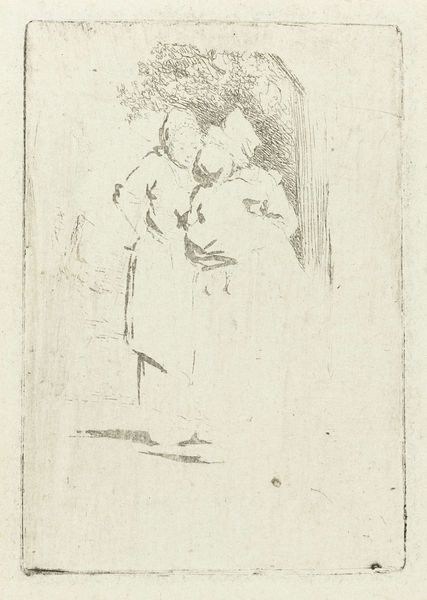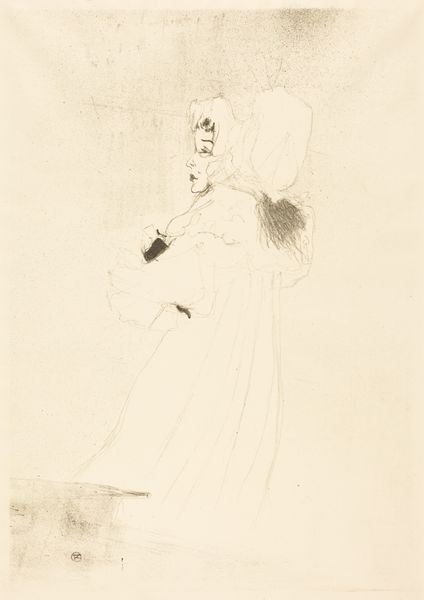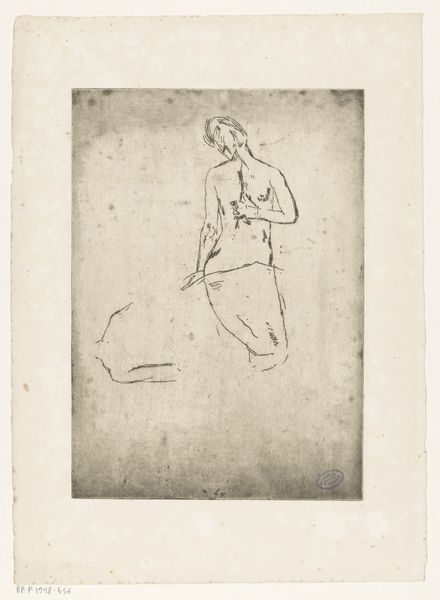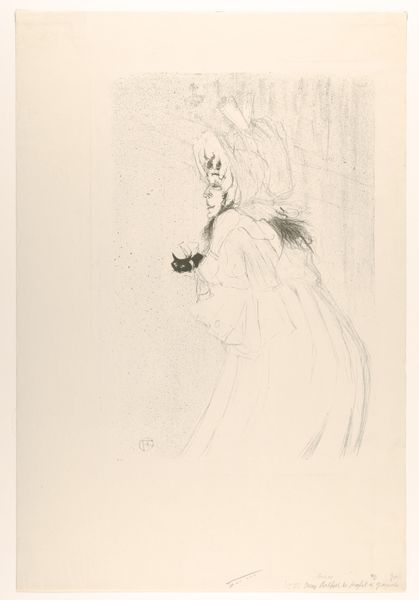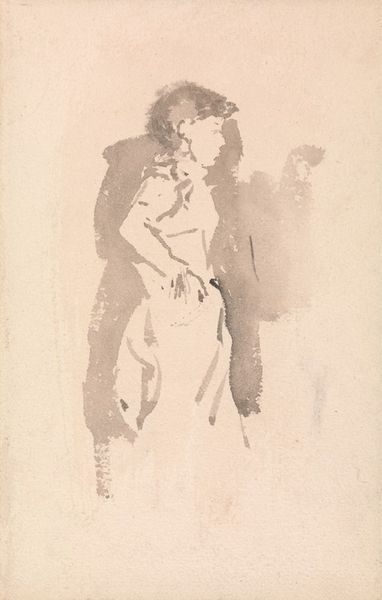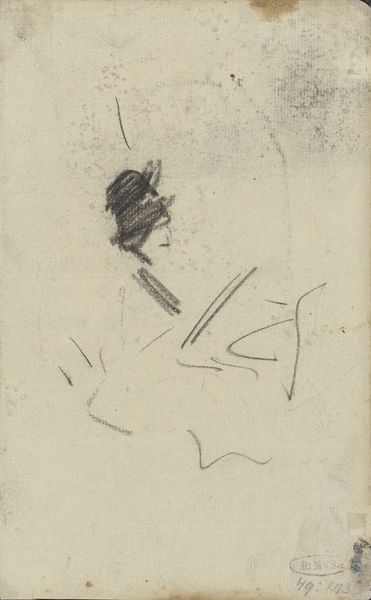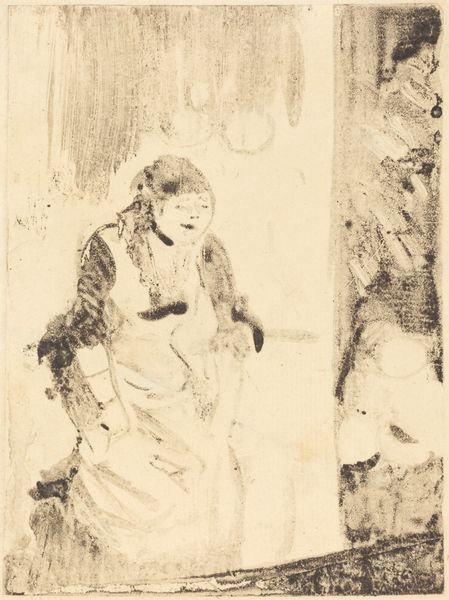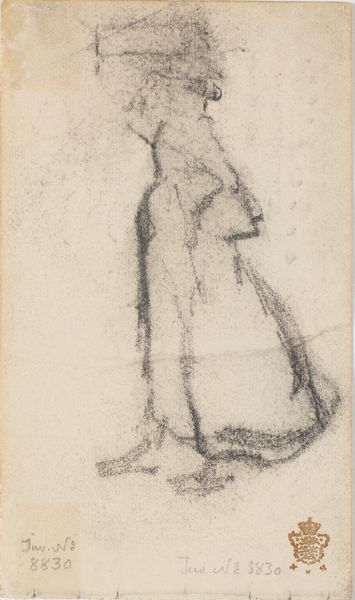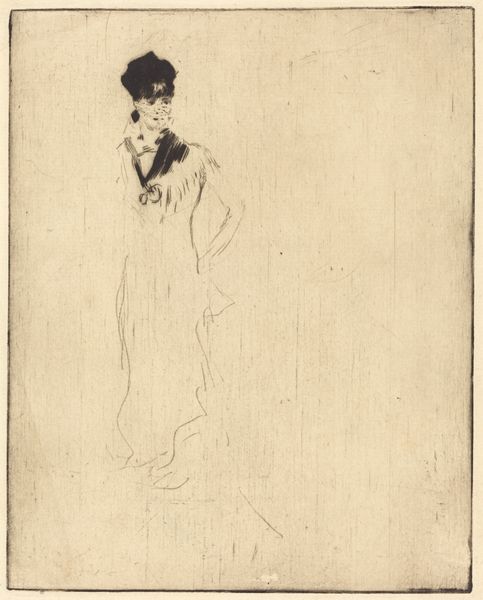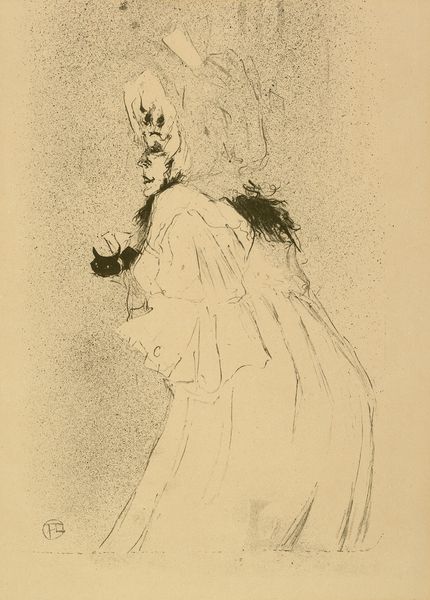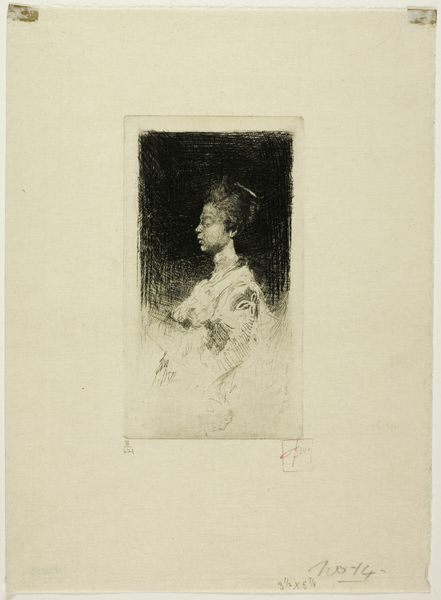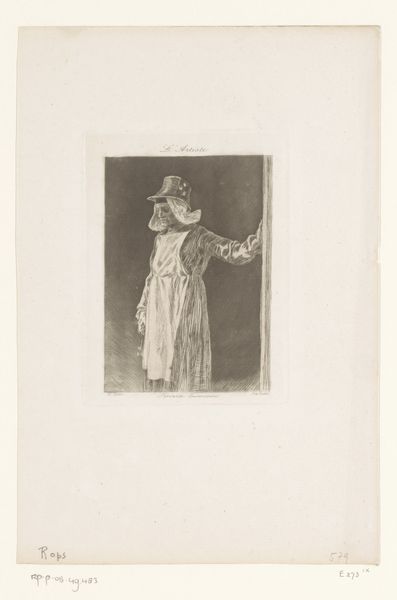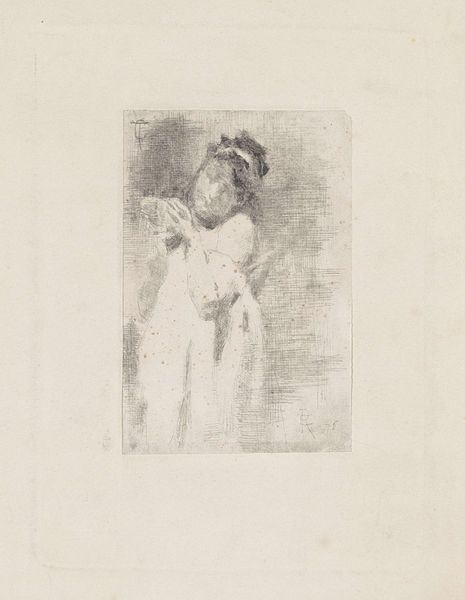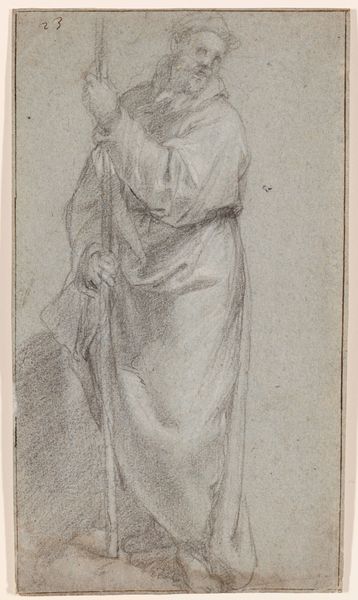
drawing, print, pencil
#
portrait
#
pencil drawn
#
drawing
# print
#
impressionism
#
pencil sketch
#
charcoal drawing
#
figuration
#
pencil drawing
#
pencil
#
pencil work
#
realism
Dimensions: plate: 23.5 × 15.7 cm (9 1/4 × 6 3/16 in.) sheet: 25.8 × 18.7 cm (10 3/16 × 7 3/8 in.)
Copyright: National Gallery of Art: CC0 1.0
Giuseppe de Nittis created this etching, Elegant Young Woman Seen from Behind, in the late 19th century. It’s a portrait of a woman whose social standing is announced by her dress and bearing. De Nittis was an Italian artist working in Paris, where he became part of the Impressionist circle. Like his contemporaries, he was interested in modern life, particularly in representing the leisure activities of the Parisian bourgeoisie. Here, the woman’s elegant dress, accessorized with a shawl, and her apparent engagement with some sort of fashionable pursuit suggests a life of comfort. But what is she doing? Is she attending the opera, or simply amusing herself in the private space of the home? The woman’s averted gaze is typical of Impressionism. It suggests a modern self-consciousness and a desire for privacy. The art institutions of the day were divided on whether such subject matter was appropriate for serious art. To understand the social life of art in 19th-century Paris, scholars consult sources such as exhibition reviews, newspapers, and the letters of artists and their patrons. These resources help us understand art as a product of its time.
Comments
No comments
Be the first to comment and join the conversation on the ultimate creative platform.
